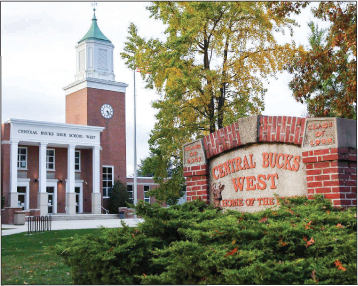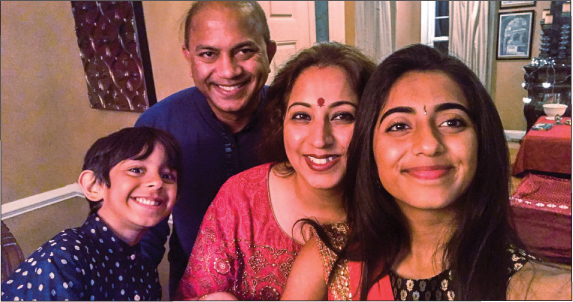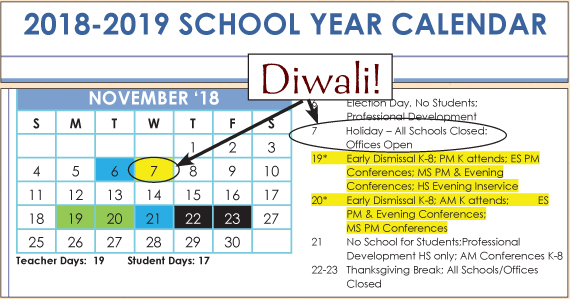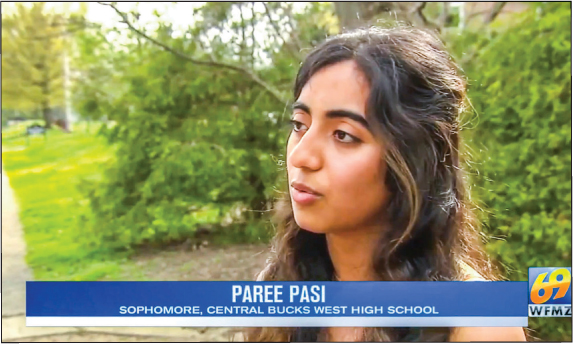Young Pennsylvania Hindus making our biggest holiday official
By Santhanaa Hariharaputran, 16, Irvine, California
I want people to think, what if it was me? What if I had to go to school or work on my holiday? How would I feel?” said Paree Pasi of Pennsylvania in her May 2021 interview with WFMZ-TV’s 69 News, sharing her thoughts on school holidays in regards to her religion. This concern, and inspired by the success of her cousin in a nearby district [see sidebar], powered the actions of Central Bucks West High School student Paree Pasi into starting a campaign to recognize Diwali as a school holiday. If she succeeded, all schools in her district would close for the day, with no classes being held. Hindu students would be allowed to celebrate in traditional fashion, and the others would learn about one of the world’s major holidays.Diwali, the Hindu festival of lights, is an official state holiday in 12 countries, including Fiji, Guyana, India, Malaysia, Mauritius, Myanmar, Nepal, Pakistan, Singapore, Sri Lanka, Suriname and Trinidad, with a combined population of 1.7 billion people, or 22% of the world’s population. It is the fourth most popular holiday in the world after New Years Day (January 1), Christmas and Eid al-Fitr.

Pasi personally treasures Diwali and its traditions, especially the family get-together for a grand feast. She points out that the Indian holiday is similar to the American traditions of Christmas and Thanksgiving—both also being marked by feasting.
Yet, the closing of schools on Diwali itself is not Pasi main concern. The campaign is more about her belief that “A school calendar should reflect the changing demographic of a community.” She also said she felt underrepresented, unappreciated and unheard.
A district school board in Pennsylvania is allowed to designate five local holidays a year, beyond the state or federally mandated ones. Central Bucks District chooses to close for Good Friday, Yom Kippur and Rosh Hashanah. If a particular holiday is not official, “Students of any faith in Central Bucks can take an excused leave of absence for religious reasons,” Pasi stated.
She has the support of students and staff, with the local teachers’ union issuing an official statement in support. Opposition, she says, has come mostly from the conservative Christian community. Her campaign is strengthened by the adoption of Diwali as an official holiday by not only her cousin’s district, Council Rock, but also the Pennsbury district, both nearby.
Pennsylvania state as a whole, according to the Pew Research Center, is 73% Christian and 21% with no religion. One percent identify as Jewish, Hindu or Muslim, and slightly fewer as Buddhist. With these statistics, some could argue that the school calendar in Pennsylvania already reflects its religious population, due to the high percentage of Christians present. However, Pasi reasons that “it’s not about numbers, but about creating an inclusive community.”
Her interview with WFMZ-TV attracted quite a few comments, some in support, some critical. One said, “When I was in school, I lived in a town that had just a couple of students who practiced Judaism. There was no problem with them taking off to celebrate Jewish holidays. It didn’t mean that five hundred Christian kids could get off. Suppose we make Diwali a school holiday, then a Muslim child comes along and wants all Muslim holy days to be declared school holidays. Everyone of every religious persuasion gets their holy days declared school holidays. What will that do to the educational system?”
In the case of Central Bucks, the district already has set two Jewish holidays, despite the relatively low number of Jewish students, so that precedent is in Paree’s favor.
In Irvine, California, in the school district of myself, the author, we have the option to take off school for a holiday of our religion, but that isn’t necessarily a very good option. One Hindu I spoke with at my high school puts academics over holidays and would not take a day off if it meant missing important classes or tests. “Why would you take off before the most important math test of the entire semester?” she challenged another Hindu student. The confused and slightly offended classmate replied, “I took the day off to spend time with my family for Diwali.”
After this encounter with her religiously active classmate and after hearing of Pasi’s efforts in Pennsylvania, the student’ perspective of only focusing on academics changed somewhat and she wondered why Irvine school district, which is much more diverse than Central Bucks, doesn’t consider making Diwali a school holiday.

Similarly, Pasi encountered one Hindu student at her school who thought that giving a day off was unnecessary, and education about Diwali might be better. But mostly the Hindu students supported her efforts.
Asked how she explains the importance of Diwali, Pasi told Hinduism Today, “Diwali is the biggest Hindu holiday, with around 1.2 billion people celebrating worldwide. It is a 5-day event recognizing the victory of good over evil, light over darkness and, in parts of India, the new Hindu year. Diwali, ‘festival of lights,”’ was derived from the Sanskrit and Tamil term Dipavali meaning a row of lights. When Rama, Sita and Lakshman were coming back to their hometown, Ayodhya, after 14 years of exile and the defeat of Ravana, the villagers lit a path with diyas, traditional clay lamps, to celebrate Rama’s victory and to show him his way back home, since Diwali falls on a moonless night.”
She goes on to describe the extensive preparations, including the rangoli designs made on the sidewalks and outside the front door, the cleaning and renovation of the home, and the creation of a temporary shrine, all to encourage the Goddess Lakshmi to enter and bless the family. On Diwali day itself the family visits the temple and sets off fireworks in the evening. “My favorite tradition,” Pasi said, “that my family and I personally have is our big dinner. My mom cooks all my favorite food, many dishes which I don’t get to have often. Eating those special meals and catching each other up on our lives makes irreplaceable memories.”
Pasi has yet to achieve her goal and continues the effort. Her efforts have gotten over 1,500 votes in favor of adding Diwali to the school calendar, and many are hoping that this initiative will continue to spread to other districts as well. After all, a Google search says that “almost 3.1 million people in America celebrate Diwali,” so why is such a widely-celebrated holiday not on the American school calendar?
Success in Council Rock District
In Pennsylvania, Paree had a playbook to follow in her campaign to have Diwali declared an all-school holiday at Central Bucks High School: her cousin Vir Sahu’s successful 2018 campaign with the same goal at the Council Rock School District, just 12 miles southeast of Central Bucks.
According to a report in the The Indianite, the official school newspaper of Council Rock North High School, Sahu first approached the Council Rock school board at their December, 2017, meeting. “He argued that recognition of major Hindu holidays such as Diwali in the school calendar would be a step in building a more inclusive school community,” according to the report. By the board’s January meeting, he had gathered 450 signatures from students and community members on a Change.org petition. He, his father and two other students testified in favor of the holiday at the meeting. They were successful. The proposal was formally added to the February meeting agenda, and the board unanimously voted to make Diwali a full day off. The decision sparked considerable local coverage.
Sahu told The Indianite, “I learned that students have the ability to make a difference when they see something in their community that needs to be changed. We have stronger voices than we may seem to perceive, and it is important to make yourself heard, especially regarding topics that are close to your heart.”

Born in Kanyakumari, Tamil Nadu, and now residing in Orange County, California, Santhanaa Hariharaputran is a Bharatanatyam dancer and devout Hindu. In her spare time, she aspires to be a polylinguist and violinist and to pursue her passion for medicine. Contact her at: santhanaamhari@gmail.com.

I applaud the author for raising this important issue and advocating for the closure of schools on Diwali. It is a step towards building a more inclusive society where all individuals, regardless of their cultural or religious backgrounds, can thrive and feel respected. Let us embrace the spirit of Diwali and celebrate the rich tapestry of diversity that makes our world a vibrant and harmonious place.